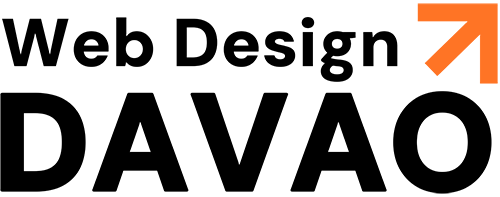In today’s digital age, having a website is crucial for any business looking to establish an online presence and connect with potential customers. However, before you dive headfirst into website development, it’s essential to take some time to consider your goals, budget, and the various technical and design elements involved. From choosing a platform and hosting provider to creating engaging content and optimizing your site for search engines, there are many factors to consider when developing a successful website. In this article, we’ll cover some of the key considerations you should keep in mind before embarking on your website development journey, so you can create a site that meets your needs and helps you achieve your business goals.

The importance of having a website in today’s digital age
A website acts as a virtual storefront, allowing you to connect with potential customers 24/7 and reach a global audience. Studies show that over 80% of consumers research a company online before purchasing. You can use valuable opportunities to attract and convert new customers with a website. A company website helps establish your brand and build credibility and provides a platform to showcase your products or services and build relationships with your audience.
The need to consider goals, budget, and technical/design elements before beginning website development
Before embarking on website development, it’s essential to take some time to consider your goals, budget, and technical/design elements. This will help ensure that your website meets your needs and enables you to achieve your business objectives.
Start by defining your website goals, whether generating leads, increasing sales, or building brand awareness. Next, consider how you will measure success and what metrics you will use to track progress. From there, determine your budget for website development, including costs associated with design, development, hosting, and ongoing maintenance.
Once you have a budget in mind, you can start exploring options for website platforms and hosting providers that meet your needs. Finally, consider your website’s technical and design elements, such as user experience, search engine optimization, and mobile responsiveness, to ensure your site is user-friendly and accessible to all visitors. By taking the time to consider these factors, you can create a website that meets your needs and helps you achieve your goals.

What do you want your website to accomplish?
Defining your goals is an essential first step in developing a successful website. Consider what you want your website to accomplish, whether generating leads, increasing sales, building brand awareness, or providing information to your audience. Once you have a clear concept of your website’s purpose, you can begin strategizing around the content, design, and functionality needed to achieve your goals. Your website should be tailored to the needs and preferences of your target audience, with a focus on providing value and engaging content that encourages visitors to take action.
How will you measure its success?
To determine the effectiveness of your website, you’ll need to establish metrics for success and track your progress over time. This can include metrics such as website traffic, bounce rate, time on site, conversion rate, and revenue generated. Use tools such as Google Analytics to monitor these metrics and gain insights into your website’s performance. Regularly reviewing your analytics data and adjusting your website based on these insights can help you improve its performance and achieve your goals.
How will you differentiate yourself from competitors?
In a crowded online marketplace, you must differentiate yourself from competitors and provide unique value to your audience. Start by researching your competitors and identifying their strengths and weaknesses. Next, consider what sets your business apart and how you can communicate that effectively through your website. This could include features such as personalized service, high-quality products, competitive pricing, or a unique brand voice. Finally, use design elements, such as color scheme and visual style, to help establish your brand identity and create a memorable user experience. By differentiating yourself from competitors and providing unique value to your audience, you can stand out in the crowded online marketplace and attract and retain loyal customers.
What are the costs associated with website development?
Website development costs can vary widely depending on factors such as the complexity of the site, the design elements involved, and the platform and hosting provider used. Website development costs include:
- Website design and development.
- Domain registration.
- Website hosting.
- Ongoing maintenance and updates.
- Any third-party tools or integrations needed to enhance website functionality.
It’s essential to clearly understand these costs before beginning website development, as this can help you establish a budget and ensure that you have the necessary resources to build and maintain your website.

How much are you willing to invest in your website?
Determining how much you are willing to invest in your website is crucial in the website development process. Start by considering your business goals and how your website fits your overall strategy. How much revenue do you expect your website to generate? How much are you currently investing in other marketing channels? Next, consider your budget for website development, including any recurring costs such as hosting and maintenance, and be realistic about what you can afford. Finally, allocate funds for ongoing optimization and testing, as this can help ensure your website remains practical and relevant.
How can you maximize your budget and get the most bang for your buck?
You can use several strategies to maximize your website development budget and get the most value for your investment. Start by prioritizing the features and functionality that are most important to your business goals, and consider whether particular design or development elements can be phased in over time. Consider using templates or pre-built themes, a cost-effective way to achieve a professional-looking website without the expense of custom development.
Additionally, be sure to choose a website platform and hosting provider that can scale as your business grows to avoid costly migrations down the line. Finally, consider investing in ongoing optimization and testing to ensure your website is effective and efficient, helping you get the most bang for your buck.
What are your options for website platforms (e.g., WordPress, Wix, Squarespace)?
Many website platforms are available today, each with its own strengths and weaknesses. Popular options include WordPress, Wix, Squarespace, Shopify, and many more. When choosing a website platform, it’s essential to consider your business goals, technical expertise, and budget. Some platforms are more flexible and customizable than others, while others may be easier to use out of the box. Consider your long-term goals and whether your chosen platform can scale as your business grows. Additionally, consider the technical expertise required to manage and maintain the platform and any associated costs for third-party integrations or add-ons.
How do you choose a hosting provider that meets your needs and budget?
Choosing a hosting provider is an important decision in the website development process, as it can impact the performance and security of your website. When evaluating hosting providers, consider factors such as uptime guarantees, server location, support options, and pricing. Some providers may offer shared hosting, which can be a cost-effective option for smaller websites with lower traffic volumes. Others may offer dedicated or VPS hosting, providing more outstanding performance and control but at a higher cost. Consider your website’s expected traffic volume and technical requirements when choosing a hosting provider. Review user reviews and ratings to ensure your selected provider is reliable and responsive to support requests.

What content will you feature on your website?
The content you feature on your website will depend on your company goals and target audience. It may include product or service descriptions, case studies, blog posts, customer reviews, and more. When developing your website content, it’s essential to consider what information your customers will find valuable and compelling. Consider your customers’ questions and the solutions your business provides, and ensure that your content addresses those needs. Additionally, ensure your content is accurate, up-to-date, and consistent with your brand messaging.
How will you organize and structure it for maximum impact?
Organizing and structuring your website content is an essential consideration in website development. A well-organized website can help users find the information they need quickly and easily, leading to a better user experience and greater engagement. Consider your business goals and the information your customers seek, and develop a structure that makes sense for your business. This may involve grouping related content together, using clear and descriptive labels for navigation menus, and ensuring that the most critical information is easily accessible from the homepage.
How will you make your content engaging and compelling?
Engaging and compelling website content can keep users on your website and encourage them to take action. To make your content more engaging, consider using images, videos, and other multimedia elements to break up text and add visual interest. Additionally, use clear and concise language and avoid jargon or technical terms that may be unfamiliar to your audience. Consider incorporating customer reviews or testimonials, as social proof can be powerful in convincing users to take action. Finally, ensure that your content is easy to read and scan, with clear headings, bullet points, and another formatting that makes it easy to digest.
The key considerations for website development
Website development involves many vital considerations, including defining business goals, identifying target audiences, selecting a platform and hosting provider, designing and organizing content, and measuring success. Each of these considerations can significantly impact your website’s success, and it’s important to carefully consider each before beginning development. By planning and strategizing, you can ensure that your website effectively meets the needs of your business and your customers.
Why is it so important to take the time to plan and strategize before beginning development?
Taking the time to plan and strategize before beginning website development is crucial for ensuring that your website meets your business goals and effectively meets your customers’ needs. Rushing into development with a clear plan can save time, resources, and a website that fails to achieve your desired outcomes. By taking the time to define your business goals, identify your target audience, and carefully plan your website structure and content, you can set yourself up for success and maximize the impact of your website. Ultimately, the extra time and effort you put into planning and strategizing will pay off in a more effective, engaging, and successful website.
If you’re looking for a web design and development team that delivers quality results at an affordable price, look no further than Web Design Davao – your one-stop shop for stunning, effective, and user-friendly websites!



